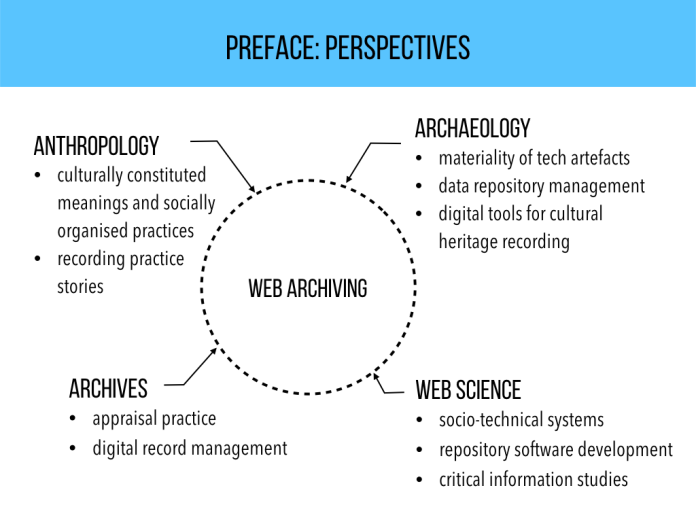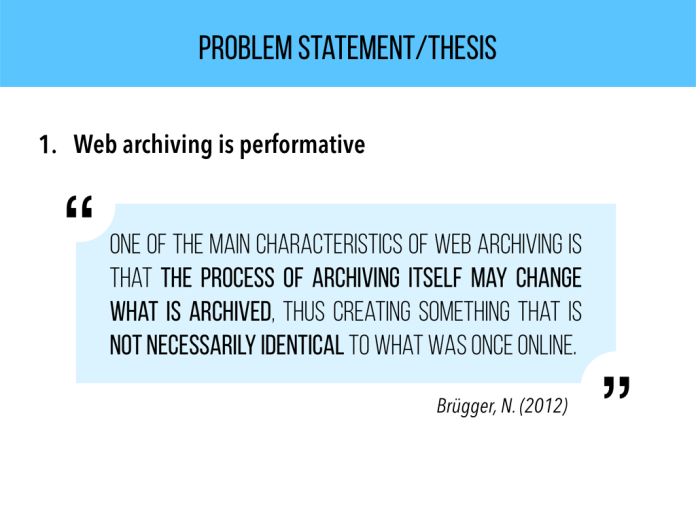There’s something I’ve noticed, which I expect makes me not alone. The PhD is a lonely place, even when you’re part of a Doctoral Training Centre where 80-some-odd PhD students are embarking on the research process, each securely pre-equipped with all the self-doubt, anxiety and uncertainty that seems to come with the territory. Luckily we have conferences, ‘unconferences’ and ‘hack-a-thons’ to bring us together – nay, force us to meet and mingle both other students and ‘experts’ in our fields.
Last week following the Archives Unleashed 2.0 datathon I had the pleasure of presenting at the Joint Conference on Digital Libraries 2016 Doctoral Consortium at Rutgers University in the US. It was the first time that I have had the opportunity to present and share my research amongst experts and practitioners in the field of web archiving, and needless to say, I was a little nervous. Every year the JCDL has a Doctoral Consortium where PhD students get the chance to present their ongoing research, typically at the earlier stages where the work really is a work in progress. I am technically through around a year and half of my PhD, though after taking some time off last year it’s taken me a while to bounce back and get my research in order. Being self-conscious about this fact, I decided to apply to the DC as a mechanism for jumping in, connecting with other web archiving researchers and presenting my research for the first time.
Motivations
 I presented some of the core ideas of my thesis and also got the chance to think about how my academic background and professional experience has impacted on the nature of this interdisciplinary project. I’ve reflected a lot recently on the nature of interdisciplinary research in general – particularly in the context of Web Science (which in and of itself is new, in flux and has very different interpretations internationally). I started the presentation with a preface about my academic and professional background and how I believe this informs my perspective on web archiving. I think these perspectives and disciplines each contribute something to my research – some of which I’ve outlined below. You can read more about my background, but in short, I’ve spent about 10 years thinking about and developing digital tools for cultural heritage recording. My interest in web archiving is steeped in a longstanding fascination with observing and recording ‘practice stories‘ to enable a record of the development of a field or set of practices – but also to facilitate critical engagement with the unlimited ways in which both humans and technologies – together – create and constrain what is known about the world.
I presented some of the core ideas of my thesis and also got the chance to think about how my academic background and professional experience has impacted on the nature of this interdisciplinary project. I’ve reflected a lot recently on the nature of interdisciplinary research in general – particularly in the context of Web Science (which in and of itself is new, in flux and has very different interpretations internationally). I started the presentation with a preface about my academic and professional background and how I believe this informs my perspective on web archiving. I think these perspectives and disciplines each contribute something to my research – some of which I’ve outlined below. You can read more about my background, but in short, I’ve spent about 10 years thinking about and developing digital tools for cultural heritage recording. My interest in web archiving is steeped in a longstanding fascination with observing and recording ‘practice stories‘ to enable a record of the development of a field or set of practices – but also to facilitate critical engagement with the unlimited ways in which both humans and technologies – together – create and constrain what is known about the world.
Defining a Web Archive? Huh?
Continuing on from a lengthy pub conversation at Archives Unleashed (and as an extension to my ongoing struggle to understand the boundaries of what web archives are and how this differs across communities) – I tried to flag up some issues with the act of defining web archives. Some of this is anecdotal (see the tweets below) as I have yet to find very much in the way of explicit definitions for web archives (see the presentation for a few) – subsequently causing me to reflect again on why one would want to do this in the first place, and why there is a noticeable absence of definitions in the literature. But as I am interested in web archival practice, I thought it was first necessary to collate how the community defines and discusses that which is the central focus of said community (the web archive) – seems only sensible, right?
The short story/hypothesis to date is: there are lots of assumptions made in web archiving, and in the different ways that people distinguish the boundaries of web archives. There was some discussion of ‘Web 1.0’ vs ‘Web 2.0’ (e.g. web archives vs ‘social media archives’) – a distinction which I believe is no longer useful in the context of the contemporary Web; whether data collected via APIs can be considered a web archive; and whether collection over the HTTP/HTTPs protocol is the defining characteristic of web archives (of course leading to speculation about TOR/IPFS/etc.). If it’s not obvious yet, understanding web archives seems to require examining one’s assumptions and preconceptions about ‘what makes the Web, the Web’. All of this leads me to return to why this matters at all – or indeed, why definitions are seemingly so fluid (and inexplicit) across the literature?
Performativity in flux
Here’s where performativity finds its way in. I should note here that ‘performativity’ was flagged as a pretty opaque concept during my DC presentation. Part of this goes back to the problems of knowing your audience and attempting interdisciplinary work – but really it’s more likely down to the fact that I’m still working out my thinking on this.
 I’m playing with the idea that web archival practice is performative – and that web archives are emergent through practice. Therefore, they are not merely copies of stuff from the Web – as we know that the very act of web archiving changes the nature of what is being archived (see Brügger2012). Web archives are contingent on any number of socio-technical factors that lead to their creation – and thus my thesis contends that these mechanisms and circumstances surrounding the production of web archives are fundamental to understanding them as ‘new forms of social data’ (Lupton 2015).
I’m playing with the idea that web archival practice is performative – and that web archives are emergent through practice. Therefore, they are not merely copies of stuff from the Web – as we know that the very act of web archiving changes the nature of what is being archived (see Brügger2012). Web archives are contingent on any number of socio-technical factors that lead to their creation – and thus my thesis contends that these mechanisms and circumstances surrounding the production of web archives are fundamental to understanding them as ‘new forms of social data’ (Lupton 2015).
Just to note, I have of course been drawing on Judith Butler’s work on the role of performativity in the portrayal of gender (see Butler 1990; 1996). Along with thinking about the emergent qualities of web archival practice, I believe there is also scope for considering such concepts as ‘social magic’ and the ‘naturalisation of practice’ in the development of the field of web archiving. Further inspiration here is provided by Cook and Schwartz’s (2002) critique of the normalisation of archival practice as ‘archival science’ – in which they use performativity to explain how archivists develop practice over time and perform their role as ‘objective stewards’ in anticipation of archival audiences and users. That may sound a bit loaded, but suffice is to say I think there’s plenty of scope to consider the ways in which web archival appraisal work is inescapably subjective (and the important ramifications of this for what is and isn’t archived) – important conceptual work that I think is emerging in other areas of web archival research, where for instance, the ethical implications of selection practices are being considered.
Wrapping up, with more to come
There’s a lot more to it of course, but I’ll spare you dear reader from every aspect of my thesis (and the DC presentation) in its current state – including a full rendition of my actual research questions and proposed methodology. I’m hoping the presentation went well – I certainly got some useful feedback, particularly with regards to how I am planning to approach my methodology and sampling in order to address said research questions. This has added to my current thinking about ‘communities of web archival practice’ and really how I’m going to go about assessing the outcomes of my research…(again, for another post)!
If you’re interested , you can find my full presentation slides on SlideShare (also embedded above), and hopefully my accompanying paper will be up sometime soon. A full rundown of the rest of the DC presentations can be found over on the Old Dominion Web Science/Digital Libraries blog – so do yourself a favour and go check out what’s happening in the world of the JCDL DC! All and all I had a great time at JCDL and the DC. For an ‘outsider’ to the digital library community it was fascinating to see what the field is up to. Word on the street is next year’s JCDL will be hosted in Toronto so watch this space!
References
Brügger, N., 2012. When the Present Web is Later the Past: Web Historiography, Digital History, and Internet Studies. Historical Social Research, 37(4), pp.102 – 117.
Butler, J. Gender Trouble: Feminism and the Subversion of Identity. Routledge, New York and London, first edition, 1990.
Butler, J. Performativity’s Social Magic. In Schatzki, T. R. and Natter, W., editors, The Social and Political Body. The Guilford Press, New York, 1996.
Cook, T. and Schwartz, J. M. Archives, Records, and Power: From (Postmodern) Theory to (Archival) Performance. Archival Science, 2:171–185, 2002.

